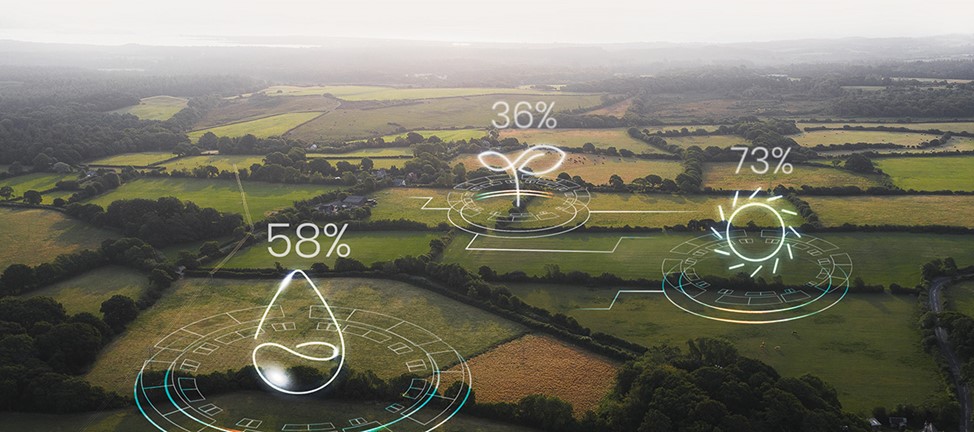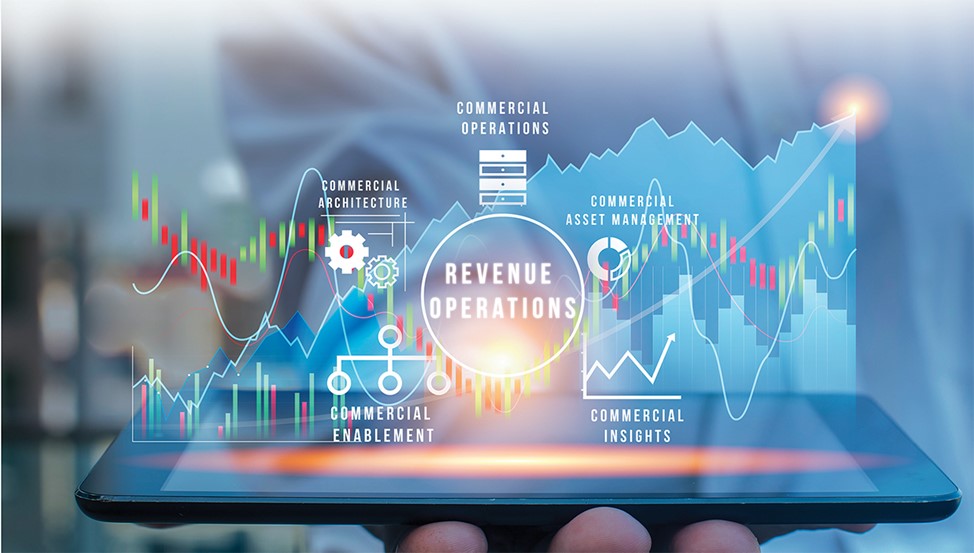This Q&A first appeared in March’s print edition of Business Monthly.
Antony Cook, Microsoft Corporate vice president and deputy general counsel, discusses the future of AI in daily life.
Replies were edited for length and clarity.
What is the role of AI in emerging economies in the short, medium, and long terms?
At Microsoft, we believe in the transformative power of AI to reshape personal and professional life, helping people advance critical thinking, stimulate creative expression, and be more productive.
That is one reason we have partnered closely with OpenAI since 2019 to accelerate breakthroughs. That has included building an Azure supercomputer to support OpenAI in developing cutting-edge AI models.
In every nation, AI will drive breakthroughs in healthcare, scientific research, and sustainability. AI can immediately help organizations increase efficiency and productivity, leading to economic growth. In the medium term, AI can help businesses develop new products and services, and expand into new markets.
In the longer term, AI can help businesses drive innovation and create new industries, leading to sustainable growth and development. Governments will be able to deliver better citizen services efficiently and cost-effectively. The potential and impact of this technology will be one of the most consequential in a generation
How would daily human activity permanently change if it used AI?
AI has the potential to significantly impact every aspect of our lives, particularly the way we work. For example, AI can help automate repetitive tasks, allowing us to focus on more complex and creative work.
At Microsoft, we focus on the improvements AI can bring, such as better decision-making that AI can enable by providing insights and analysis based on large amounts of data and how AI can help us collaborate more effectively and be more productive. That is why our AI productivity solutions are named “Copilot” and not “autopilot.”
Why is it essential to regulate AI use in emerging economies?
As the world focuses on the immense benefits of AI, we must acknowledge the potential risks that inevitably arise from using such transformative technology, particularly future competent and sophisticated large-language AI models, generally referred to as frontier models.
Ensuring the technology is developed and deployed ethically and responsibly is essential. More broadly, government, civil society, and industry must come together to ensure that as AI becomes a bigger part of our lives, laws, norms, and standards are in place to guide responsible use. That will be true globally and for all economies, as this technology’s impact will transcend geographical boundaries.
Informed by our internal work to identify and address AI risk, Microsoft believes regulation of this technology should be “risk-based,” which focuses resources and safeguards on the highest-risk applications. It needs to also be “outcomes-focused,” setting out what regulated actors must achieve rather than how they achieve it. Lastly, it should be adaptable and aligned to international norms and standards.
How much will this complicate the global deployment of Microsoft’s AI-powered platforms, Copilot, and others?
Governments are still trying to understand this technology’s benefits, risks, and potential societal impact. That is why emerging laws must be risk-based and ensure that AI is developed and deployed safely and securely without impeding human advancement and benefit. In this regard, a multi-stakeholder engagement approach is essential. That is why Microsoft supports and has participated in several principles-based dialogues and declarations being developed globally.
Microsoft is a founding member of the Partnership on AI, the Rome Call on AI Ethics, and the IDB’s (Inter-American Development Bank’s) fAIrLAC initiative and has engaged deeply with the AI work of international organizations like the OECD, G7, and UNESCO. We participated actively in the AI Safety Summit organized by the U.K. government in November. Such global initiatives are needed to better understand and mitigate any potential harmful effects of AI.
Regarding the proposed EU AI Act, Microsoft supports its risk-based framework and encourages its focus on a clear list of well-defined high-risk uses and specific prohibited uses. That is the right approach to promoting the development and uptake of trustworthy AI and fostering innovation and competitiveness. We urge policymakers to preserve these elements as the AI Act approaches its final adoption stage.
Which version will emerging economies get?
Microsoft does not believe there is a single or right approach to govern AI development and deployment. Though we advocate for global cooperation and harmonizing approaches to governing technology, we recognize that each country must consider its circumstances based on its values and aspirations.
As a company that deeply believes in developing and deploying AI responsibly, we offer the below five-point approach to help governments advance AI governance more quickly, based on the questions and issues that are pressing to many:
- Implement and build upon new government-led AI safety frameworks.
- Require effective safety brakes for AI systems that control critical infrastructure.
- Develop a broader legal and regulatory framework based on the technology architecture for AI.
- Promote transparency and ensure academic and public access to AI.
- Pursue new public-private partnerships to use AI as an effective tool to address the inevitable societal challenges that come with new technology.
If advanced countries don’t agree on regulations, how will that affect global AI deployment?
AI governance, especially for frontier models, needs multi-stakeholder engagement and involvement. Working toward an internationally interoperable approach to responsible AI is critical to maximizing the benefits of AI globally. More broadly, to make the many aspects of AI governance work internationally, we will need a multilateral framework that connects various national rules and ensures that an AI system certified as safe in one jurisdiction can also qualify as safe in another.
There are many effective precedents for this, such as common safety standards set by the International Civil Aviation Organization, which means an airplane does not need to be refitted midflight from Cairo to Cape Town.
AI governance should be treated as a journey, not a destination. Regulations and rules need to be adapted and tweaked as we go along. The important thing is that these rules are not fragmented in a way that creates barriers to adoption and deprives nations and organizations of the benefit of AI adoption. That is why Africa must engage in these multilateral framework discussions. AI governance should not be left to certain countries alone.
What is the role of companies like Microsoft in these governance dialogues to ensure that emerging markets are not sidelined?
As a company at the forefront of AI (and Generative AI) development and deployment, Microsoft believes that it is responsible for ensuring that the technology is deployed safely and securely.
We are committed to working with others to ensure AI is built and used responsibly and ethically, advances international competitiveness and national security, and serves society broadly, not narrowly.
In July 2023, we publicly endorsed a set of voluntary commitments to advance safe, secure and trustworthy AI crafted by the Biden Administration. All over the world, we are engaging with governments, sharing our expertise, learning and recommendations on how we think they should approach AI governance.
In February 2024, Microsoft published a whitepaper titled “AI in Africa: Meeting the Opportunity” (microsoft.com). The whitepaper shares specific use cases and benefits of AI that we see across Africa, as well as recommending risk-based AI governance approaches for policymakers.
How can emerging markets accelerate their AI infrastructure and legislation?
Emerging markets can leapfrog in technological and economic advancement by embracing AI adoption. Nations should develop national AI strategies that articulate their visions, goals, areas of focus, investments and governance principles.
This strategy should be developed through multi-stakeholder engagements involving policymakers, private sector entities, public institutions, academia, civil society and experts in the field.
It is vital to note that the public cloud is the critical infrastructure powering AI development and democratizing its global adoption by acting as a distribution platform. Governments should act to remove roadblocks to the consumption of public cloud solutions. That requires the adoption of national cloud-first policies or regulations.
Internet connectivity and digital literacy are essential to achieving democratic access to technology in general and AI in particular. Governments should invest in broadband connectivity, STEM education for citizens and digital skilling for the workforce.
How is Microsoft working with individual emerging economies to accelerate the adoption of AI?
Microsoft believes that every organization in the world should benefit from the power of large-scale AI models. That is why we have developed platforms, tools and a supercomputing infrastructure that would allow a developer anywhere in the world to build and scale their own AI innovation. We are infusing AI across our solution portfolio to increase productivity and introducing new products like Azure OpenAI Service that provide businesses and developers with access to high-performance AI models to create their own AI solutions and applications.
Microsoft recognizes the imperative for expanded broadband connectivity in democratizing access to AI technology and is actively working to bridge gaps in these areas. Through initiatives like the Microsoft Airband Initiative, Microsoft endeavors to make affordable broadband accessible to underserved global communities, having enabled high-speed internet access for over 63 million people since 2017. That includes more than 15 million people in Africa alone. We also have committed to connecting 250 million people by the end of 2025, 100 million of whom are in Africa.
Through our AI Skills Initiative, Microsoft offers free courses on Generative AI on LinkedIn Learning to 80 million people globally. The initiative, part of our Skills for Jobs program, has the first “Professional Certificate on Generative AI” in the online learning market. It also has a global grant challenge with data.org to find new ways to train workers on generative AI and give everyone more access to free digital learning events and resources to boost their AI fluency.
How do you assess the Egyptian government’s efforts to use AI responsibly?
The Egyptian government, mainly through the Ministry of Communications and Information Technology, has been a great adopter of technology to increase employee productivity and deliver digital citizen services. Egypt was one of the first countries in Africa to adopt a national AI strategy in 2020, following the inauguration of the National Council for Artificial Intelligence in 2019.
The government also issued the Egyptian Charter for Responsible AI in 2023. All these show that the government is invested in helping the country take advantage of AI for its economic development and to advance its national competitiveness. We look forward to Egypt’s full implementation of its AI strategies and participation in framing the regional and global dialogue on responsible AI governance.
Microsoft is engaging with different stakeholders in the Egyptian government to provide recommendations grounded on our global outlook to policymakers on the needed regulatory frameworks for AI, considering the specificity of the local regulatory landscape and ensuring that proposed regulations create an enabling environment for the use of technology for the benefit of the country.







